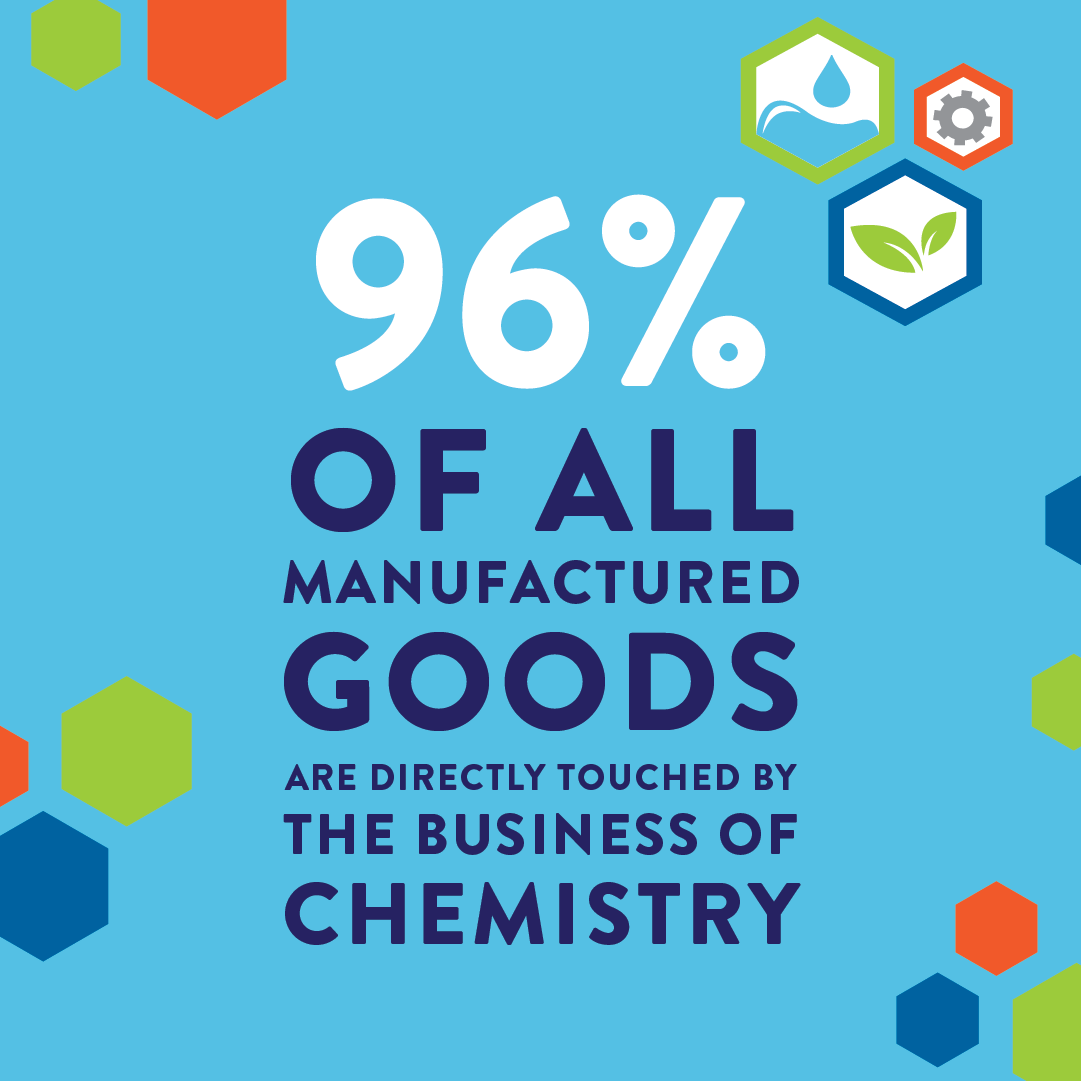About Michigan's Chemical Industry

- Output
- At $10.39 billion, chemistry is one of the largest manufacturing sectors in Michigan.
- This makes Michigan the 14th-largest chemical-producing state in the nation.
- Michigan's chemical industry ships $2.2 billion in products to customers around the world, making it the third-largest export sector in the state.
- Jobs
- Michigan's chemical industry provides 19,427 direct jobs and another 27,133 related jobs.
- The average wage for the business of chemistry in Michigan is $94,229, which is 33 percent higher than the overall manufacturing sector in the state.
- In Michigan, the chemical industry also generates an additional 36,657 jobs in plastics and rubber products.
- Value
- Michigan's chemical industry generates $1.83 billion in annual payroll.
- In our state, the chemical industry also contributes $138 million in state and local taxes, and $273 million in federal taxes.
- Michigan's chemical industry invests $343 million annually to build and update equipment and facilities.

Chemistry in the Automotive Industry
Chemicals are essential in the production of automotive adhesives, coatings, plastics, composites, rubbers, fluids, and more.
- Every light car produced in the U.S. contains more than $3,500 of chemistry products.
- Michigan is the leading state for the automotive plastics sector, with nearly 15,300 jobs and $5.5 billion in annual shipments.
- On average, plastics make up 50 percent of new car's volume, but less than 10 percent of its weight.
- Lightweight vehicles help save the average American driver $400 a year in fuel.
For more information, please visit the American Chemistry Council's Plastics Division Auto Team.
Chemistry in Buildings and Construction
Chemicals are essential in the production of roofing, insulation and house wraps, piping, adhesives, windows, and more.
- Every new home built in the U.S. contains over $15,000 of chemistry products.
- Many new homes are built with the goal of being "net-zero" energy users; such homes rely heavily on energy-efficient materials and solar energy components enabled by chemistry.
- A 2009 study found that home insulation products save more than 200 times the amount of greenhouse emissions used in their creation.
For more information, please visit the American Chemistry Council's Plastics Division Building and Construction Team.
Chemistry in Agriculture
Chemicals are essential to increase agricultural production, decrease crop loss, and ensure food safety and freshness through packaging.
- Food production capacity is a vital global issue, with the world's population expected to grow to nearly 9 billion people by 2050.
- In the U.S., crop protection products add $82 billion in increased yield and quality of crops. As a result, American families save 35% on fresh fruit and more than 45% on fresh vegetables.
- The use of crop protection products in Michigan provides for an additional economic output of $4.3 billion and 29,122 jobs.
For more information, please visit CropLife America.
|